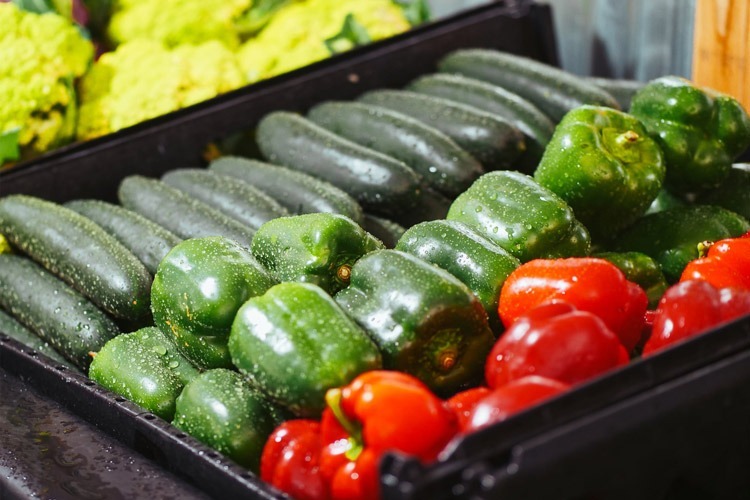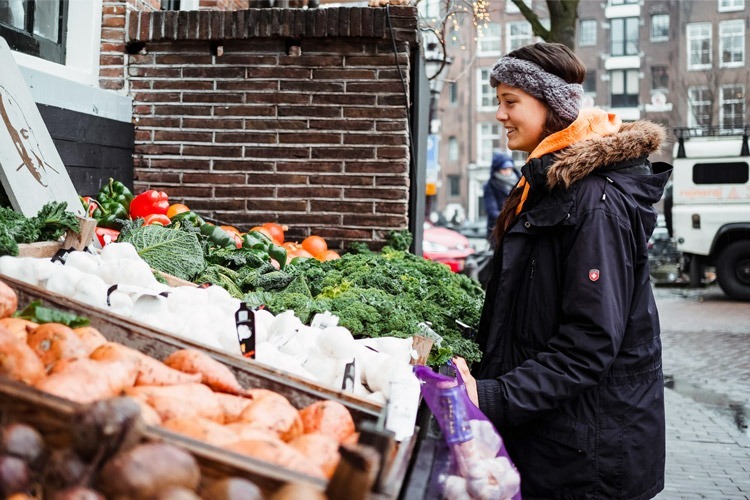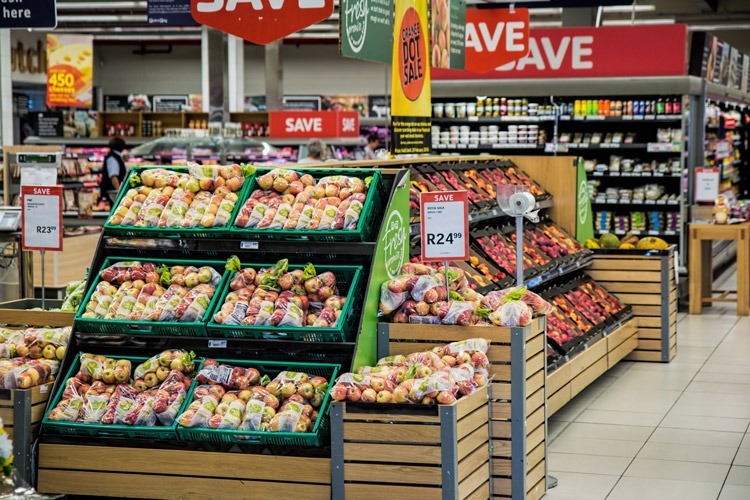Between automation, big box stores, online grocers, massive agricultural companies, restaurant closers, severe weather caused by climate change, and plummeting commodity prices, operating a small farm—and navigating it through modern challenges and changes—is big work. In fact, the U.S lost more than 100,000 farms between 2011 and 2018. And the COVID-19 pandemic has now exacerbated the challenges.
However, there is evidence that suggests people are becoming more thoughtful about where their food comes from and how it gets to their kitchen tables. Further, people are being more mindful about spending locally and shopping small to support their community and local creators.
As a multi-generational, family-owned farm, we at Port Farms determined that it would be a good idea to look at the current landscape of local agriculture, provide a few ways for people to support local farmers, and highlight a few of the initiatives that we’ve taken to grow in this changing industry.
What is Direct-to-Consumer (DTC) Farming?
Direct-to-consumer farming describes the process of customers purchasing their goods right from their local farmers, as opposed to purchasing produce from a grocery store. On average, direct-to-consumer sales typically occur within 100 miles of the farm. The benefits of direct-to-consumer farming include:
- Fresher produce for consumers
- Control over the price of produce
- Lower debt levels for farmers
- Less machinery and land required to achieve a certain level of sales
- Higher survival rates for farm operations
- Fueling the local economy
With the COVID-19 pandemic in mind, the popularity of direct-to-consumer farming has only increased. The direct-to-consumer model eliminates the excessive amount of interactions that others have with produce, supports the local economy, puts an end to the uncertainty behind where the produce comes from, and almost guarantees product freshness.

In a grocery store, many hands turn over and inspect produce. If the produce isn’t to a customer’s liking, the produce is then left to its container for the next person to touch and examine. Damages caused by handling and shipping to a grocery store can also impact a customer’s decision to purchase the goods because produce that is scarred or discolored is not desirable. It can also lead to the spread of germs. According to Feeding America, “52 billion pounds of food from manufacturers, grocery stores, and restaurants end up in landfills rather than kitchen tables.”
5 Ways to Support Local Farms
Farmers will always have competition with businesses that use mass production, but you can help decrease the divide between local and worldwide produce sales. Here are five ways you can support local farms:
1. Buy Direct, and in Bulk
Local First states that if you make purchases locally, $68 will stay in the community for every $100 you spend, whereas only $43 will stay in the community if you spend $100 at a non-local business. Making local purchases means that more of your money will go towards paying employee fair wages, generating jobs, funding local taxes, making investments in the community, and providing local services and supplies.
Buying produce and meat in bulk also requires less packaging. In turn, there will be far less plastic involved in the packaging process. Not only will buying in bulk save you a bit of money and provide you with a greater amount of goods, but it will also allow you to practice being environmentally friendly with little effort! In addition, you will be saving farms that have entered crisis mode due to being unable to sell their produce, meat, and milk to restaurants that have closed down due to the economic impacts of COVID-19. Buying in bulk also makes it easier on meat producers due to the fact that COVID-19 has drastically slowed down processing production.

For those who reside in Pennsylvania, you may also choose to purchase produce that has been marked with a “PA Preferred” logo. The Pennsylvania Department of Agriculture recognizes the logo as a “resource for finding locally grown and processed agricultural products from the Commonwealth of Pennsylvania.” Rest assured that when you come across this logo, you are directly aiding farmers in need of local support. The website also identifies what produce is in season, where to buy local produce, and advocates for programs such as Farm to School that benefit both farmers and the local community.
2. Spread the Word
If you stumble across a local farmer’s market or an event at a farm, don’t keep the news to yourself! Consider spreading the word to family, friends, and even coworkers. Marketing by word of mouth is a great way to support local farmers because it is cost-free, and it is especially beneficial to those who rely on direct-to-consumer methods to get by.
Additionally, word-of-mouth marketing is one of the best ways to increase sales given that consumers trust the ratings and words of other consumers. Nielsen has stated that “92 percent of consumers around the world say they trust earned media, such as recommendations from friends and family, above all other forms of advertising.” You can help support your local farmers just by offering a recommendation alone! If you want to become even more involved, consider joining your local food council or attend local board meetings to advocate for the inclusion of locally-grown produce.
3. Eat Seasonal Food Whenever Possible

Seasonal food refers to the produce that is bought and consumed around the same time that the goods are harvested by farmers. Choosing to purchase and consume food that is in season:
- Helps support local farms
- Funds the local economy
- Allows farmers to inform you of how the food was grown
- Helps the planet by reducing the amount of miles the produce must travel
- Reduces the need for chemicals and pesticides
- Reduces expenses due to the abundance of supply
Eating seasonally goes hand-in-hand with eating locally! Not only will eating seasonally help guarantee the freshness of your produce, but it will also be healthier for you too.
4. Corporate Events and Educational Programming
The next time you’re thinking about hosting a corporate or educational event, consider a local farm! From organizing team-building activities to relaxing picnics, a farm is large enough to accommodate just about any of your business needs. You can support the farm further by offering to pay for any catering services they may offer. Beyond business gatherings, a farm’s barn may be the perfect place to host your next graduation or birthday party, given they have the right amenities. If you haven’t heard, barn weddings are quite popular!
Farms are a great place for kids as well. Field trips to local farms can offer insights into farm life, animal education, and even teach children about the importance of locally-grown produce at an early age. What’s more, kids can learn about the beneficial health impacts of locally-grown food as opposed to food that is mass produced and travels miles to reach their dinner plate!
5. Request Local Products at Local Institutions
Hospitals, schools, grocery stores, food banks, and local governments typically have a high food demand. These institutions can be contacted directly, and in doing so, you should request that they reach out to local food councils to source their food locally. These institutions may benefit greatly from locally-sourced food given that the produce will be more fresh and positive relationships may be built within the community. In turn, the local economy will experience a boost given that a cycle has been established between supply and demand; the farmers can depend on their consumers to purchase their goods, and the consumers will receive locally-grown produce and fuel their community in doing so.

Project PA and PA Preferred are two great Pennsylvania-based resources to get started with incorporating local produce into your local institutions.
About Port Farms
The Port Farms family is no stranger to the life of farming. In fact, we’ve been tilling soil and feeding northwest Pennsylvania since 1897. In addition to growing and selling produce, we’re a family-friendly farm that prides ourselves on offering seasonal activities to fuel our local economy, provide ample amounts of fun, and generate revenue to keep our business thriving.
How do we do it? Our professional and creative team offers wedding packages throughout the summer and fall months, and both the wedding and the reception can be held right here at the farm! Our outstanding team also organizes corporate and educational events for businesses and schools, prioritizing team-building fun, safety, and even providing farm-fresh meals.
Farm Fun
At Port Farms, we know what it takes to be a business that relies on local support, which is why we host many activities to account for every season! From hosting birthday parties and school tours to campfires and horse-drawn rides, we have it all. Visit our site to browse what we have to offer or check out our blog for more information!

